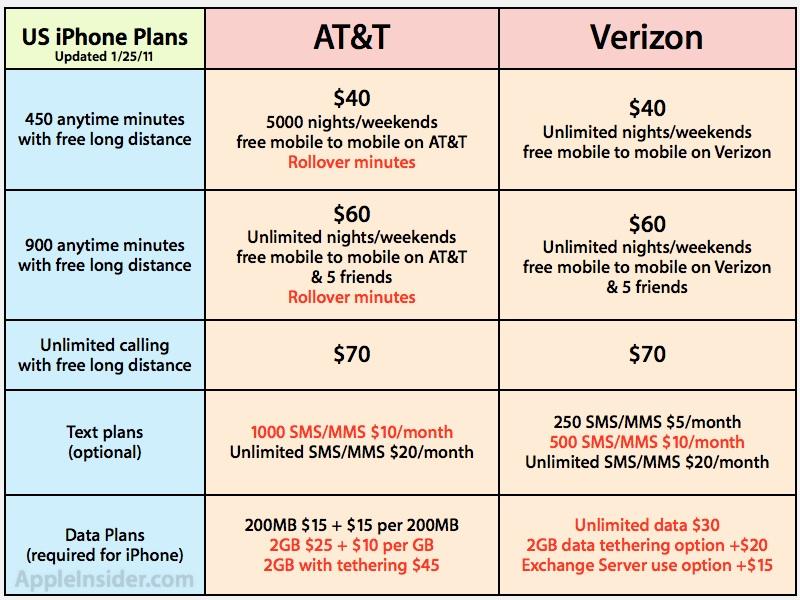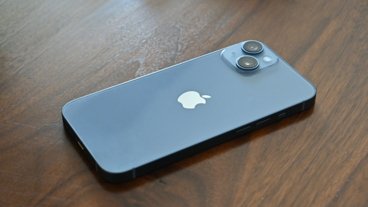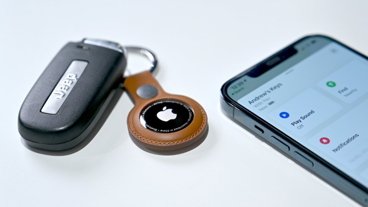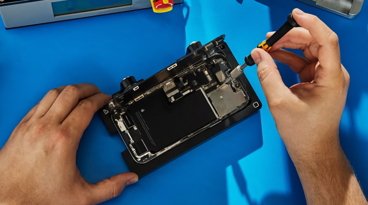Verizon confident in ability to support new iPhone users
According to a report by the Wall Street Journal, a source "familiar with the matter" has said that the largest US carrier "is confident enough in its network that it will offer unlimited data-use plans when it starts selling the iPhone around the end of this month."
That confidence, both reportedly on the part of Verizon and on the Journal writers who carried the story, suggest that Verizon itself is promoting the story in order to woo smartphone users to its network and its new iPhone.
Verizon's US 3G
Verizon was the first major US carrier to offer 3G service nation wide, and therefore has the most mature 3G buildout covering the widest area. However, Verizon used Qualcomm's CDMA EvDo to deliver its 3G service, a technology which is now growing long in the tooth without any upgrades in the pipeline. Qualcomm abandoned the future of EvDo's 3G to join the rest of the industry in building globally-compatible 4G network technologies.
AT&T grew from the merger of a series of US GSM providers, and by the time it launched the iPhone under its then-new AT&T brand in 2007, it was just beginning to roll out its own 3G service. That network immaturity left Apple to rely upon AT&T's existing, but slower EDGE network for the original iPhone.
AT&T's 3G network is built using UMTS technology from the same 3GPP standards body that managed GSM, EDGE, and UMTS and which is now laying out the future mobile networks with HSPA+ and LTE.
Since 2008, Apple's iPhone 3G, 3GS and 4 all use UMTS for 3G, allowing them to work on both AT&T and most other mobile networks around the world, but necessitating a different iPhone 4 model in order to work on Verizon's existing network.
Verizon focuses on 3G quality
Given the widespread complaints AT&T users have made regarding its 3G service coverage, Verizon hopes to market its unique iPhone 4 model as being backed by a better network. It will, however, be slower than the best spots on AT&T's existing network, which can provide real world data downloads at speeds of 3.5 to 5 Mbps.
Verizon's CDMA EvDo is closer to 1Mbps, but reliable 1Mbps service is far better than an unreliable, unavailable, or oversaturated link that may be capable of faster speeds only in theory, while in practice it doesn't work at all.
By seeding stories about the quality of its coverage and the likelihood of offering unlimited use data contracts with its new iPhone, it appears Verizon wants to head off any tactics by AT&T to damper its iPhone launch tomorrow. AT&T has already started promoting the idea that its network is much faster, suggesting that Verizon only offers users the "slow lane."
AT&T and Verizon offer slow lane updates
The existing iPhone 4 is already compatible with UMTS HSDPA-enhanced networks offering up to 7.2Mbps downloads and HSUPA service that support 5.2Mbps uploads, although US networks don't currently take full advantage of that capability, something Apple's chief executive Steve Jobs admitted on stage when he introduced the new phone last summer.
AT&T is clearly suggesting that by delivering a CDMA EvDo version for Verizon, Apple is taking a step backwards, even as AT&T works to roll out new, faster HSPA+ service in more markets that can take full advantage of iPhone 4's capabilities.
At CES, Verizon heavily promoted its plans for modernizing its mobile data service, which involve adding an LTE data overlay to its existing EvDo network. That new level of data service isn't broadly available yet, and the phones promised to work with LTE for faster data won't ship until the middle of this year. That leaves Verizon with no option apart from selling a CDMA version of iPhone 4.
However, Verizon has been promising easy upgrades to LTE across a variety of its current products. Additionally, spy photos purporting to be the modified iPhone 4 cases to used by Verizon's iPhone were depicted with SIM card slots. CDMA doesn't use SIM cards, but LTE does. That could indicate that Verizon's iPhone 4 may arrive with CDMA and a future option for taking advantage of the new LTE network for data in the future.
That may also explain why Verizon announced its LTE direction and related handsets first at CES, before addressing its new iPhone partnership at a later event. Verizon could be setting expectations to help deflect unflattering network speed comparisons by AT&T.
AT&T and Verizon war over iPhone users
Leaking confidence about its network to major new outlets could also help bolster Verizon's launch. The Journal report noted that "Verizon more than any other US carrier has built its reputation on its network quality, and any stumble in handling iPhone traffic will call into question Verizon's major selling point. On the other hand, if it does handle the iPhone well, then AT&T will have a harder time arguing it didn't mismanage its own network."
Verizon has been handling smartphone demand from an estimated 9 million Android phones, many paired with unlimited data plans, throughout last year. It also offers smartphone data tethering plans and PC dongle WWAN service, neither of which have generated public outcry regarding service availability, in contrast to AT&T's issues.
Verizon's rollout of LTE is expected to help iPhone users even if the iPhone itself isn't ultimately capable of being upgraded, because LTE will carry more of Verizon's network load, and the backhaul necessary to support LTE will also support the company's data service in general.
The report cited Anthony J. Melone, Verizon's chief technology officer, as saying, "we added enormous capacity to the network in one fell swoop [in building out LTE]. It is there waiting for us to grow into it. That will help me tremendously with my 3G network."
After Verizon's launch, AT&T will be left with two advantages: first, that it still offers a much faster network for iPhone 4 users in some markets, and second, that it can offer the cheaper iPhone 3GS, which will not be offered on Verizon. AT&T is now selling the 3GS for just $49 in hopes of attracting users on a budget. AT&T also notes that UMTS allows smartphones to access the data network while on a call, something Verizon's CDMA network does not support.
This summer, Apple will likely release iPhone 5 and iOS 5 with moderate, software-centric feature bumps more reminiscent to the jump from iPhone 3G to the 3GS, rather than a radical hardware-centric redesign of iPhone 4. That AT&T-centric launch may add support for the even faster HSPA+ network AT&T is currently rolling out in some markets. Apple is also likely to work toward making lower cost iPhone models it can sell in emerging countries.
 Daniel Eran Dilger
Daniel Eran Dilger











 Andrew Orr
Andrew Orr
 Malcolm Owen
Malcolm Owen

 William Gallagher
William Gallagher

 Mike Wuerthele
Mike Wuerthele
 Christine McKee
Christine McKee








